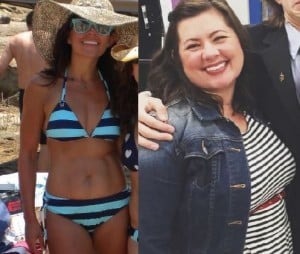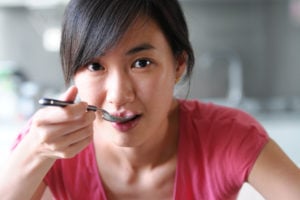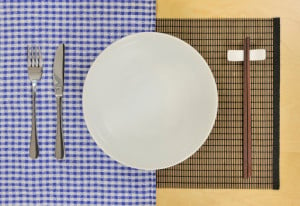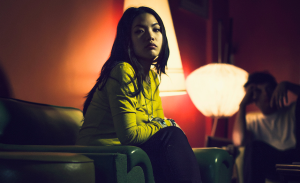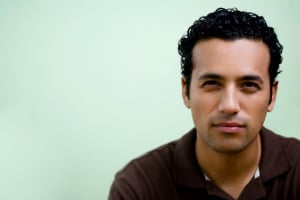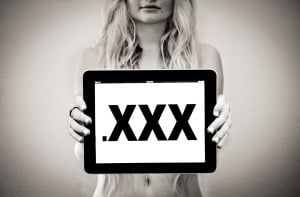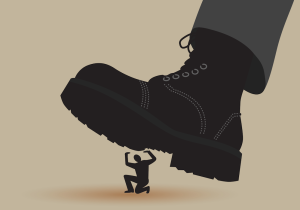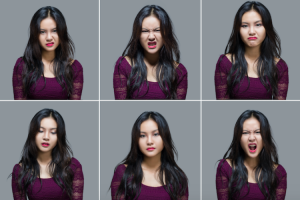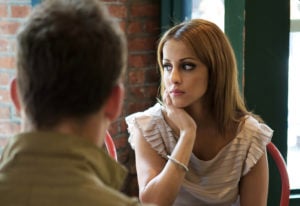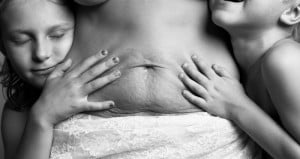Franchesca Ramsey: We really need to talk about how black women are portrayed in pop culture.
Director (offscreen): Cut! Great, but let’s get it sassier!
Franchesca Ramsey: Really?!
Director (offscreen): Perfect!
[Graphic of MTV News: Decoded with Franchesca Ramsey]
Franchesca Ramsey: From the sassy black friend to the sexy prostitute on the wrong side of the tracks, to the overly helpful house cleaner, black women are so very oftentimes stereotyped in pop culture. But these stereotypes are more than lazy writing; they have long histories. So maybe we should just get f— rid of them.
Meet “The Jezebel.” She’s sexual. She’s aggressive. She just wants it all the time. You know what I mean.
And considering we live in such a hypersexual world, “The Jezebel” must be a new thing, right?
Not even close.
When Europeans first traveled to Africa in the seventeenth century, they were shocked that African dress exposed so much skin, totally ignoring the fact that it’s way hotter in Africa then Europe.
[Gasps] (In European voice) “Why don’t you have seventeen skirts on?!”
The horny European explorers then assumed African women were sexually lewd animals trying to seduce them, and that’s how “the jezebel” stereotype was born.
And in nineteenth century America, the long-running stereotype of African women with long sexual appetites was often used by slave owners to justify rape.
In fact, it was argued that it was impossible to rape a black woman because of that fabled sexual appetite.
Cut to the Jim Crow South, and everyday items like ashtrays, postcards, and drinking glasses, depicted over-sexualized images of black women and girls, reinforcing this dangerous stereotype.
And it was dangerous. During that time, black women were regularly assaulted by white men, and they rarely faced criminal charges.
And while stereotype has persisted throughout TV and film history, today you can usually find the jezebel archetype in music videos and all over reality TV. It also pops up in the policing of black women’s bodies and sexuality. Just ask Rihanna, or Nikki, or Beyoncé.
But remember, too much sexuality can be threatening, so—
Meet “the mammy.” Mammy is fat, old, and very dark-skinned.
She was given these physical traits to show that she was undesirable and prove that white slave owners didn’t find black women attractive.
“The mammy” lived on through Jim Crow to imply that black women were only fit to be domestic workers. We began to see “the mammy” character everywhere, from books, and movies, to advertising, like Aunt Jemima.
And if you think this stereotype doesn’t still have power in media, the first black woman to win an Academy Award for acting was Hattie McDaniel playing a slave-era mammy in Gone with the Wind. Seventy-plus years later, the incredibly talented Octavia Spencer won an Oscar playing a 1950s style mammy in The Help.
So black women are either seductresses or non-sexual happy workers. So what else is there?
Meet “the headstrong black women.” She’s loud, she’s sassy, and she doesn’t take anybody’s s—.
Let’s skip straight to the root of this pop culture stereotype: Amos and Andy.
In the 1930s, this popular radio show took the world by storm. While the two main characters were supposed to be black, they were actually voiced by white men, and the entire appeal of the show was the mockery of black behavior and dialect.
As if that wasn’t offensive enough, the duo were joined by Kingfish, their con artist friend, and his domineering, aggressive, and emasculating nagging wife, Sapphire, the prototypical headstrong black woman.
Amos and Andy later became a TV show, which was eventually protested by the NAACP, but the damage was already done. The show popularized racial characters of black people.
Here, Americans learned that black people were comical, not as actors, but as a race.
Following the success of Amos and Andy, sitcoms in the 60s, 70s, 80s, and 90s copied this portrayal of black women and wives. From The Jeffersons to Martin, black women were often shown as “naggy” and always having a sassy comeback to any challenge.
Fast-forward to the 90s, the headstrong black woman becomes “the sassy black friend,” with characters like Dionne in Clueless or Nurse Laverne Roberts in Scrubs, and basically every reality show about black women. Spoiler alert: reality TV isn’t reality. Popular media often relegates black women to the one-dimensional sidekick with lots of sass and endless one-liners, but little personality.
As much as we try to deny it, media plays a major part in how we view the world around us and promotes a general sense of self.
When 70% of black women say that they fear their coworkers perceiving them as “the sassy black woman,” and then attempt to change their personalities to fit in, don’t you think it’s time to retire this stereotype?
Sexy, shy, sassy, demure… black women come with all sorts of personalities, so it’s time for media to wise up and show us in all of our complexity instead of the one-note stereotypes that we’ve seen over the years.
So what other racial stereotypes are you tired of seeing on TV? And have people ever assumed that you’re like any of those?
Tell us in the comments below, and we will see you next week right here on Decoded.





